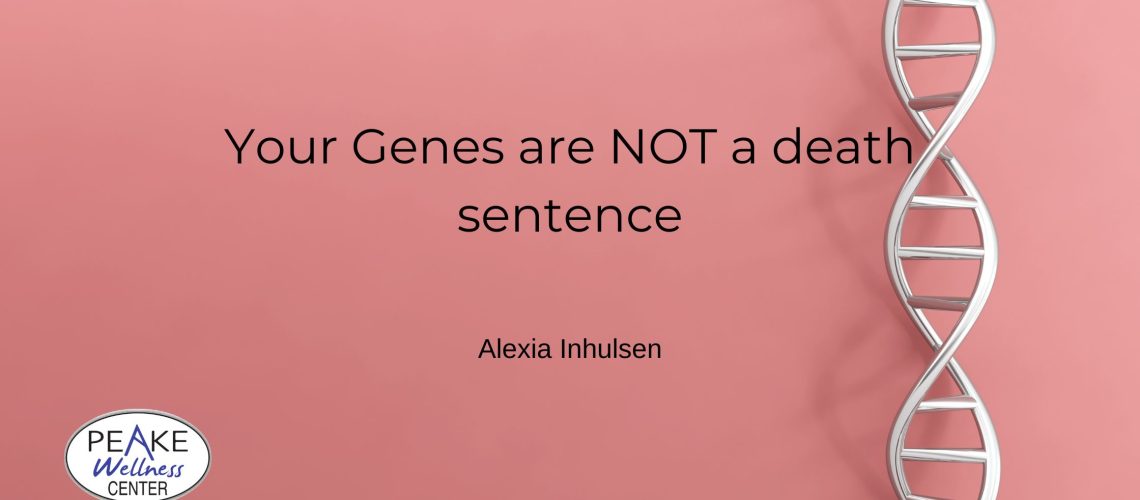What genetically differentiates an eye cell from that in your toe? Genetically speaking? When we are born, we get two sets of chromosomes, equal parts from your mom and dad. Genetically speaking, all of our cells are exactly the same. How then, does a heart cell contribute to the pumping of blood, and a brain cell contributes to everything else the body does? It’s simple really. Environment. The body’s environment is what determines if a gene is expressed…or not.
I hear it all the time. “Bad backs run in my family.” No sis, no one runs in your family. “But everyone has stomach issues,” my 87 year old German grandmother would say to me. Maybe, but we were all raised on cream cheese and sourdough, no wonder our digestive system doesn’t work the way it was designed. Don’t get me wrong, there’s no better way to start the morning than with a piece of toast with too much white spread and jam across it, but it’s not helping your bowels move any quicker. Maybe, just maybe it could be the environment that we need to consider instead of our genetics? After all, that at least gives us something to work towards instead of ‘just hoping’ we don’t get the dreaded diagnosis that we’ve seen our older relatives die from.
Hope and responsibility isn’t the only reason we need to consider this subject. Research backs it up. We already know that diets high in fiber are attached to decreased chances of colon cancer, polyps and constipation. Runners may suffer from worn out knees and ankles but tend to have healthier hearts. Absolutely everything I recommend for fertility and improving women’s menstrual cycle is also backed by research done in response to decreased birth rates in America. Vitamin D, better sleep, omegas, all of it can be traced back to people’s existing habits and while some of us have parents and grandparents who struggled with fertility, somewhere along the line they figured out the missing piece of health that brought forth a decedent or two. YOU.
Now, let’s really get into it shall we? MTHFR. Gosh this gene has sure grown in popularity as of late hasn’t it! Look, no one is saying that genes don’t contribute to certain health outcomes. I do find it funny how certain ones gain the public eye while others remain unaccounted for in the media. MTHFR is absolutely a contributing factor to certain health concerns, especially in the preconception world. However, there are other genes that contribute to this gene being expressed-turned on. These genes mutate allowing the expression of MTHFR when certain environmental conditions are present. Not convinced? Let’s talk about the BRACA genes. Often referred to for breast cancer. These genes however, are responsible for only 5-10% of all breast cancers diagnosed! So, what’s going on in the other 90% of cases? Isn’t it sad that the majority of all research is focused on this ONE gene that is only responsible for a minority of cases? This is also true for ovarian cancer too by the way. The very cancer that is blamed for taking my sister’s life in 2015.
Again, I’m not making the claim that genes don’t contribute to someone’s health concerns. We do after all, carry on our mother’s eyes or our father’s hair line for a reason. What I’m simply saying is that the healthier your environment, the better your gene expression. It’s really that simple…kinda like chiropractic.

